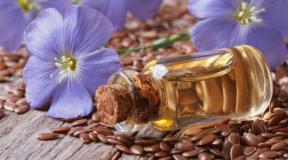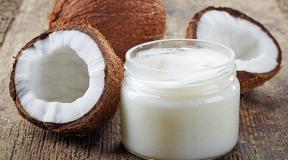How often can you use essential oils. The use of essential oils. How to use essential oils at home. Medicinal and cosmetic properties
Aroma baths, aroma massage, rubbing, inhalations, compresses and much, much more. In the arsenal of aromatherapy, there are countless ways to influence the human body, which we will discuss in detail in this article. All methods can be divided into groups:
- Exposure through the organs of smell and respiration.
- Transdermal exposure (through the skin).
- Exposure through the mucous membranes of the mouth, gastrointestinal tract, nasopharynx.
Most Aromatherapy Methods , especially those associated with mucous membranes and skin, require a competent attitude . Essential oils are medicines, it is worth remembering this and, when starting treatment, observe it, if necessary, consult with an aromatherapist.
The duration of the course of aromatherapy should not exceed three weeks. In the event that you carry out the procedure daily, the course should be reduced to 10 days. Be sure to dilute essential oils with carrier oils before use. Store the mixture in the refrigerator, or better yet, use it right away.
Methods of exposure to aromatherapy through the organs of smell and breath
Inhalations
Inhalations are hot and cold.
Hot inhalations and are effective in the treatment of runny nose, cough, stomatitis, for cleansing the face:
 How to use: Pour hot water into a bowl and add essential oil (1-3 drops). Lean over the bowl, covering your head with a thick towel, inhale the hot steam for 5-10 minutes, taking breaks (30 seconds).
How to use: Pour hot water into a bowl and add essential oil (1-3 drops). Lean over the bowl, covering your head with a thick towel, inhale the hot steam for 5-10 minutes, taking breaks (30 seconds).
Warning: eyes should be closed during inhalation, do not use hot inhalation for patients with bronchial asthma, in the presence of rosacea on the face, with a weak nervous system. After the procedure, try not to overcool.
Cold inhalations:
- Apply 1-5 drops of essential oil to a handkerchief and inhale several times (two to ten) throughout the day.
- apply relaxing or sedative oils (1-4 drops) to the corners of the pillow to ease breathing, relieve tension and promote healthy sleep.
- Aromamedallion perfectly retains the esters and allows them to evaporate gradually, retaining their healing properties for 1-2 days. The medallion is easy to use, it can be worn on clothes, in a pocket, on the body, bringing it to the face from time to time and inhaling the healing aroma.
Before applying new oil, the medallion should be thoroughly washed.
Bath
Bath is the oldest way to cleanse and improve the body. Under the influence of steam and heat, the deep layers of the skin, blood and lymph are cleansed of toxins and toxins. Esters enhance the healing effect of procedures.
How to use: add a few drops of essential oil to 1-2 liters of water (depending on the area of the room) and spray heated walls, shelves, ceiling with this mixture, trying not to get on hot stones.
Steam bath for the face. Serves as an excellent cosmetic procedure for cleansing the skin of dead cells. epidermal renewal.
Application: prepare a herbal infusion based on 1 liter of spring or well-purified and settled water. Add a few drops of the desired oil, lean over the bowl, covered with a towel, and hold your face for up to 10 minutes at a distance of 30-45 cm from the surface of the infusion.
Contraindicated procedure for patients with bronchial asthma, with a weak nervous system, with manifestation.
Aromatization and air disinfection
Even in ancient times, during epidemics, patients and rooms were fumigated with medicinal herbs. Nowadays, aromatization is carried out with the aim of:
- impact on the psycho-emotional and physical state,
- general health,
- purification, disinfection and aromatization of the air in the home.
For these purposes, you can use an aroma lamp, a spray bottle, a sachet, etc.
Aroma lamps (aroma burners) are electric, their advantage in fire safety and greater practicality. Aroma lamps with a candle are more aesthetic, but less practical and safe.

Fill the liquid container in the lamp with a mixture: 50-100 ml of water mixed with essential oil (1-2 drops per 5 square meters). Light a candle or connect a lamp to the mains. When heated, the ethers evaporate and perform their task. Windows and doors in the room must be closed.
The smell should be subtle, start with minimal doses, do not spend the first sessions with an unfamiliar oil for more than 20 minutes.
Atomizer (pulverizer) Helps scent and purify the air. Aromatic water has the following composition: 5-20 drops of essential oil, 1 tbsp. a spoonful of vodka or alcohol, 1 liter of boiled cold water. The mixture is shaken well and sprayed indoors as needed.
Sachet or an aromatic pad filled with herbs, scented with essential oils. It can perform different tasks:
- for colds, flu, otitis, infectious diseases, fill the sachet with dry leaves of birch and poplar, geranium or tansy, calendula, wormwood;
- for headaches, insomnia, nervousness, such fillers are suitable: chamomile, rosehip or rose petals;
- with hypertension, a pillow with mint, hawthorn, cornflowers, clover will be useful;
- sage will help get rid of skin diseases.
Transdermal exposure
Baths(like baths) refer to the complex methods of aromatherapy: we inhale the vapors of essential oils and absorb them through the skin.
This determines the high efficiency of aromatic baths, which was appreciated by the ancient Romans, who loved these procedures for their sophistication and sensuality.
In addition to pleasure, baths are beneficial for arthritis, rheumatism, insomnia, muscle pain, nervous tension and other painful conditions.
Baths are common, sitting, foot, for hands. Duration - up to 25 minutes.
Dosage. Mix essential oils or their compositions with an emulsifier (honey - 1 tablespoon, cream or kefir - 100-200 ml, sea or table salt - 2-3 tablespoons, red wine - 1 tablespoon) in the following proportions:
- full bath of water - 6-8 drops (with a weakened body - 4 drops, for the first bath - 2-3 drops),
- sitz bath - for 10 liters of water 2 drops of oil,
- foot and hand - 4 drops.
Strong and toxic oils should be used in minimal doses (1-2 drops per bath): cinnamon, oregano, thuja, marjoram, thyme, nutmeg, clary sage.
For oils like tea tree, pine, cedar eucalyptus, rosemary, juniper, cajuput, carnation- dosage 2-4 drops per bath.
Other oils - 13-15 drops per bath. The optimal dosage is 6-8 drops per bath.
Frequency of use: baths should be taken every other day or once a week for prevention, the course of prevention consists of 5-7 procedures, the course of treatment - 10-15 baths.
Important! Aroma baths have contraindications: malignant hypertension, high blood pressure, post-stroke conditions, psychotic conditions, etc.
Massage with essential oils has a positive effect on the circulatory, respiratory, peripheral and central nervous systems, heals all organs, helps with fatigue, cough, osteochondrosis.
 They apply both general massage and massage of individual parts of the body, as well as self-massage, focusing on the palms and soles of the feet.
They apply both general massage and massage of individual parts of the body, as well as self-massage, focusing on the palms and soles of the feet.
Dosage. If your health is normal and there are no contraindications, then the optimal dosage will be 2-3% concentration of essential oil. Start practicing massage with medium concentrations.
If the massage mixture is used for the face, for massage of an elderly person, for sensitive skin, the concentration should not exceed 0.5%. For young children, mix 1 drop of essential oil with 500 ml of carrier oil.
0.5% - 30 ml (2 tablespoons) of base oil mixed with 3 drops of essential oil.
1% - 15 ml mixed with 3 drops of essential oil.
2% - 15 ml (1 tbsp) base oil mixed with 6 drops of essential oil.
3% - 15 ml (1 tbsp) base oil mixed with 9 drops of essential oil.
Small doses can give the best effect, so start the massage with minimal dosages. Also listen to the reaction of the body, if you don’t like the oil, replace it with one with similar properties.
Base oils for various problems:
Dry and aging skin - wheat germ oil.
Oily skin - grape seed oil or coconut oil.
Skin diseases and sunburn - aloe oil.
Infants and young children, muscle pain - calendula oil.
Inflammation, rheumatism and burns - St. John's wort oil.
Allergies, skin diseases, pain during menstruation - jojoba oil.
Poor circulation, muscle strain - almond oil.
Massage technique. Warm up the prepared massage mixture by applying to the palms of your hands, or by warming the bubble in hot water. Massage your body until the mixture is completely absorbed. The duration of the massage should be several minutes.
Compress very effective in relieving pain and inflammation. Can be hot and cold.
How to use: mix water (200 ml) with 2-8 drops of essential oil, saturate the fabric with this solution and apply to the desired area. With a cold compress, water is mixed with ice, and with a hot compress, the water must be at a very high temperature.
Procedure duration: cold compress - 20-30 minutes (repeat several times a day), hot - 30-40 minutes (up to 6 hours).
hot compress practice with joint, muscle, rheumatic pains, lung infections, boils, abscesses, prolapsed disc. To keep warm longer, use a heating pad and wraps.
Cold compress used for insect bites, bruises, painful and inflamed skin, articular arthritis, sprains, headaches, fever, hangovers. For headaches, a cold compress is applied to the back of the head or forehead.
Rubbing indicated for inflammation of the nervous, muscular, connective tissues. By acting on the circulatory, respiratory, nervous and autonomic systems, rubbing relieves pain, stops inflammation, and helps to quickly recover to normal life.
Rubbing is an excellent alternative to massage if it is contraindicated (high temperature) or the conditions for it are not suitable.
Mix 1 tbsp. a spoonful of base oil with 1-15 drops of essential oils, rub into the problem area of the body until completely absorbed.
Bandage bandage. We prepare the solution: mix essential oil (1-5 drops) with 1 teaspoon of alcohol (vodka). The bandage is soaked with a solution and fixed on the problem area.
If necessary, increase the amount of vodka or alcohol, but the dose of oil should not exceed 8-10 drops.
Aromatherapy methods associated with mucous membranes
Essential oils should be used internally with extreme caution, due to the high concentration and sometimes toxicity of the components of essential oils.
We take inside.
Inside, spices, citrus fruits, rosemary, mint, geranium, chamomile are used. Dissolve 1-3 drops of oil in 1 teaspoon of honey or drop on a piece of refined sugar (instant).
Take daily 1-3 times, 30 minutes before meals, with a glass of still mineral water or warm juice.
The course is 7 days, 14 or 21.
The amount of water you drink per day should be at least 2 liters.
Add essential oils to your toothbrush.
Brush your teeth, rinse your mouth, rinse the brush and drop essential oil (1-2 potassium) on it. Gently massage gums and teeth.
The procedure is carried out 1 or 2 times a day, the course lasts from 14 to 21 days, then take a two-week break. If necessary, the course can be repeated.
For this procedure, you can use lemon oil, which will prevent the development of caries, reduce gum bleeding, whiten tooth enamel, and refresh the oral cavity.
Rinse your mouth and throat.
Dilute the essential oil (1-4 drops) in a glass of boiled warm water, you can add honey as an emulsifier.
Rinse several times throughout the day. Do not drink or eat after rinsing for 20 minutes.
We enrich alcoholic drinks.
Add essential oil (1-2 drops) to 500 ml of vodka. Suitable lemongrass, nutmeg, cinnamon, rosemary, grapefruit, tangerine, orange, lemon. Insist for 14-21 days.
Add 2-5 drops of essential oil (coriander, nutmeg, ginger, cinnamon or black pepper) to a bottle of red wine. Keep for a month, shaking from time to time.
White wine is enriched with lemon, grapefruit, orange, bergamot, mandarin, mint, lemongrass or rosemary (2-5 drops). Insist for a month, shaking occasionally.
We enrich tea.
Pour dry tea leaves (100g) into a glass hermetically sealed jar, add essential oil (10-20 drops) to it: lemongrass, mint, rosemary, lemon balm or citrus.
Infuse at room temperature in a dark place for 14 days, shaking the mixture daily. Brew like regular tea.
Opinion
The question of the benefits of internal use of essential oils does not have a clear answer. Among the French, there are especially many supporters of such treatment. It should be noted that French aromatherapists are highly qualified specialists and can give competent recommendations.
Being potent and highly concentrated substances, can be harmful to the mucous membranes of the nasopharynx, stomach and mouth.
When taking oils with tea, remember that they do not dissolve in water, you should use an emulsifier (honey, for example). This will protect the mucous membranes from direct contact with the components of the essential oil.
Taking the oil inside, you need to be 100% sure of it, study all its contraindications.
Possessing a high penetrating ability, the components of essential oils through the skin, through the respiratory and olfactory organs, perfectly enter the lymph and blood, are carried throughout the body and do their job.
If you still decide to use them internally, consult with your doctor before treatment, and preferably with an aromatherapist.
Take care of yourself and be healthy!
Elena Valve for the Sleepy Cantata project
- , compatibility, contraindications,
Essential oils are distilled pure essences extracted from fruits, peels, twigs, leaves or flowers of plants. They are used in aromatherapy and promote emotional and physical relaxation. Essential oils can be used in a variety of ways: applied to the body in the form of an oil-based or water-based liquid, inhaled with a diffuser, or diffused from a spray in combination with other substances. This article will discuss how to use essential oils.
Steps
Oil selection
Evaluate the quality of oils before buying. Since you will be using the oil around the house and applying it to your skin, it is in your best interest to buy a quality oil. There are no specific standards for essential oils, so it is important to consider several factors when choosing.
Consider the chemotype of the oil. Some manufacturers offer different versions of the same essential oil. Different types, or chemotypes, have a different smell - this is influenced by climate, soil and plant growing conditions, as well as other factors. The advantage of choosing a specific chemotype is the ability to obtain different solutions depending on personal preference.
Pay attention to the packaging. Essential oils quickly lose their properties when exposed to light and heat. The oil should be packaged in a dark (usually brown) glass bottle and sealed tightly. Don't buy open oils or oils that have been exposed to light or heat. .
Dilution of essential oils for topical use
Remember that essential oils should not be consumed internally. Some oils can cause poisoning and some can even cause death, so do not eat or drink essential oils. They can be applied to the skin, but most oils must be diluted first.
Decide which application is right for you. Essential oils can be diluted in oil or water for use in a diffuser, or mixed with other substances (such as bath salts). Decide what you will do with the oil before diluting it.
If you want to apply the oil to the skin, it can be diluted in a special oil or water. Almond, apricot, grape, jojoba and avocado oils are suitable for dissolving essential oils. These oils have a low odor, so they won't overpower the scent of essential oils. You can also dilute oils in water. Before you do this, decide how you will use the oils.
Use undiluted essential oils. Some experts believe that undiluted oil should not be applied to the skin, as this can cause irritation and discomfort. However, research indicates that such use is sometimes justified. For example, one study found that applying undiluted tea tree oil twice a day was effective against fungal nail infections. Before using the oil in this way, seek the advice of an experienced aromatherapist.
The use of essential oils as natural medicines
- To make your own gel, add five drops of tea tree oil to a teaspoon of aloe vera gel. Mix thoroughly and apply to acne with your fingers or a Q-tip. Store the mixture in a tightly sealed container in the refrigerator for up to a week.
-
Treat insomnia with lavender, chamomile and sage oils. The oils themselves will not save you from insomnia or its causes, but these relaxing oils will help you fall asleep faster and sleep until the morning. Best of all, lavender (relaxes), chamomile (is a natural sedative) and sage (has hypnotic properties) fights against insomnia.
- If you have a diffuser, turn it on before bed and add a couple of drops of lavender, chamomile, or sage oil.
- You can also add a few drops of oil to your bath or rub the solution on your legs and feet before bed.
- Remember that some oils (such as rosemary, cypress, grapefruit, lemon, and peppermint) can stimulate activity, so it's best not to use them in the evening.
-
Fight stress with essential oils. Perhaps most often, oils are used for relaxation and soothing. Essential oils have a positive effect on a person's emotional state, since odor receptors are associated with the human limbic system, that is, with the part of the brain that is responsible for emotions, memory, and sexual arousal. The most effective oils are the following:
- Lavender has a soothing rich, sweet scent and is popular for its ability to relax the body on a physical and emotional level.
- Frankincense oil has a warm and exotic scent that helps relieve stress.
- Rose oil fights stress as well as depression and sadness.
- Chamomile oil, especially the roman variety, helps with stress caused by anxiety, as well as paranoia and feelings of hostility.
- Vanilla oil is known for its medicinal properties. Many people find the smell of vanilla soothing, and some aromatherapists explain this by saying that the smell of vanilla is as close as possible to the smell of mother's milk. Vanilla promotes serenity and promotes clear thinking.
-
Beat snoring with thyme essential oil. This essential oil is effective in fighting snoring. Make a concentrated thyme oil solution (3-5 drops per teaspoon of regular oil) and rub into the soles of both feet before going to bed. Cedar and marjoram oils also have a similar effect.
Repel insects with lemon eucalyptus essential oil. Many industrial repellents contain harsh chemicals that smell bad and irritate the skin. A concentrated lemon eucalyptus oil solution is a great alternative to these products and smells much nicer. You can mix essential oil with regular oil and apply directly to the skin, or pour the oil into a diffuser or aroma lamp and place it near an open window.
Treat ear pain with essential oils. Topical application of some oils can help clear an ear infection and relieve pain. Oil should not be applied to the auricle, but along the neck and behind the sore ear.
Use peppermint essential oil as a remedy for dizziness. Essential oils can relieve vestibular vertigo. Peppermint oil is one of the most effective essential oils for dizziness. It is often used to treat vertigo and nausea because it contains menthol, esters and menthone, substances that give mint its cooling and invigorating properties. If you feel dizzy, put a few drops of peppermint oil on a cotton pad or handkerchief and breathe it in. The oils of the following plants also help to get rid of dizziness:
- Cypress
- Basil
- Sage
- Lavender
- Ginger
- Rosemary
- Mandarin
-
Treat sunburn with oils. Some essential oils have been used in the treatment of burns for thousands of years due to their anti-inflammatory and pain-relieving properties. The most suitable oils for these purposes are lavender, immortelle, rose and Australian blue oil (this is a mixture of several essential oils). It is best to mix the oil with aloe vera gel (1 drop of oil to one teaspoon of gel) and apply to the burn.
- You can make a burn spray by mixing the following:
- 1 cup + 1 tablespoon aloe vera juice
- A quarter cup of coconut oil
- 1 teaspoon vitamin E
- 8 drops of lavender essential oil
- 8 drops of tea tree essential oil
- 8 drops Roman chamomile essential oil
- Pour the mixture into a spray bottle and shake well.
- You can make a burn spray by mixing the following:
-
Treat minor wounds with essential oils. Lavender, tea tree, eucalyptus, peppermint, and some other oils are suitable for minor cuts, burns, and insect bites because they act as antibiotics. Clean the wound first (it shouldn't bleed). Then apply a small amount of 2-3% essential oil solution (2-3 drops per teaspoon).
- Apply the oil 2-5 times a day until the wound heals. After applying the oil, you can also apply a cold compress to stop bleeding, relieve swelling, and allow the oils to absorb.
-
For indigestion, use peppermint oil. You have probably already heard that peppermint oil is used to treat indigestion. This oil also fights nausea and digestive issues. Dilute the oil as for a large area of the body (3-5 drops per teaspoon) and rub into the stomach - this will relieve pain.
-
Treat nasal congestion with eucalyptus oil. Eucalyptus oil helps to get rid of the symptoms associated with a sore nose. This oil opens up stuffy sinuses and cools the nasal passages. Many people use eucalyptus oil to treat colds and nasal congestion caused by allergies.
- Mix eucalyptus oil with regular oil (3-5 drops per teaspoon). Apply a small amount of the solution under the nose and rub some more into the chest.
- If the nose is very stuffy, add a couple of drops to a humidifier and aroma lamp.
Get rid of headaches with essential oils. Essential oils can fight minor headaches. Dilute the oil for use on a small area of the body, then apply the mixture to the forehead, temples and back of the neck. Rub the oil into the skin in smooth, circular motions while breathing deeply. The oils of the following plants best cope with headaches:
Treat acne with tea tree oil. Essential oils can help treat acne and are a great alternative to the harsh chemicals found in creams and acne medications. One study found that 5% tea tree oil gel was as effective in fighting acne as was benzoyl peroxide, which is often found in acne creams of varying degrees.
Essential oils today are very popular and are used in the cosmetology field to improve the quality of the skin, for medicinal purposes and the prevention of various diseases. In addition, they are actively used to aromatize rooms, baths, improve mental and physical health and emotional state (to invigorate, calm, relax, increase potency, etc.). There are many ways to use them, today we will discuss the most popular of them.
Properties of essential oils.
Essential oils should be understood as mixtures of volatile aromatic substances that are isolated from various parts of plants (roots, wood, resin, seeds, bark, fruits, leaves and flowers). It is important to note that the younger the plant, the more essential oils it contains. They are clear or slightly colored liquids with a characteristic aroma and concentrated taste, characterized by the ability to quickly volatilize. Today they are used in various fields of medicine and cosmetology.
The properties of essential oils are directly dependent on the raw materials from which they are obtained. Their unique healing properties and positive effects on our body have been known and used for a long time. I must say that, due to the presence of biologically active substances in the composition, almost all of them have a bactericidal, antiseptic, anti-inflammatory, antimicrobial, antibacterial and regenerating effect, favorably affect our nervous system, help preserve and restore the beauty of the skin and hair, and also restore mechanism of self-regulation in the body. Some representatives of this group of oils help cleanse the body of toxins and toxins, have a therapeutic effect on the functioning of the gastrointestinal tract, have a positive effect on the psychophysical and emotional state of the body, activating blood circulation, relieving overstrain, eliminating discomfort, a sense of insecurity, increasing efficiency, etc. .
Each essential oil has its own unique properties and benefits. For example, chamomile, lemon, bergamot, and thyme oils have powerful antibacterial properties. Tone up and warm sage, cinnamon, nutmeg (used to massage biologically active points, which increases blood circulation and lymphatic drainage), and, on the contrary, mint and lavender cool. Oregano, frankincense, rose, fir and sandalwood are perfect for relaxation, while lemon balm and lemongrass are great stimulants. Rose, pine, as well as geranium, chamomile, myrrh and rosewood oils show powerful regenerating properties. It is these properties that are very effective when using oils in skin care. Just a few drops in homemade masks and creams, and their effectiveness will increase several times.
Among the unique properties of essential oils, one should highlight the ability to regulate the level of hormones in the body, which are responsible for maintaining and maintaining youth. Among them, one can note the oil of myrrh, sandalwood, jasmine, ylang-ylang, rose, neroli, patchouli, etc. The high efficiency of their use is due to the phytohormones contained in the oils, which have a structure similar to human hormones.
Some representatives of essential oils have a powerful antioxidant effect (juniper, rosewood, vetiver, myrrh, rose, etc.), they help restore the oxygen balance in our body, while eliminating the toxic effects of oxygen in its excess, thereby slowing down natural aging cells, enhancing tissue respiration and blood supply.
The uniqueness of essential oils is manifested in the fact that when they are used in each specific case, their healing and beneficial effect is directed precisely to the area that needs it most. That is why it is so important to choose the right essential oil in a particular case. Subject to this condition, a positive effect will appear fairly quickly.
Before using this or that type of essential oil, it is important to carefully read the instructions, paying attention to contraindications and its properties. For example, if the oil is a stimulant of vivacity and activity, then it is better not to use it at night, or, conversely, if it has a relaxing effect, do not use it during your hours of activity. It is also necessary to consider the effect of the aroma of the oil on your body. It happens that the skin from the use of this or that oil becomes magnificent, but at the same time its aroma worsens the condition and your well-being, or you simply cannot stand it.
Each essential oil has specific contraindications, so be sure to consider them before use. Pregnancy and epilepsy are considered absolute contraindications to their use (including for the skin), some types may be prohibited for people with hypertension, etc.
Some essential oils can be phototoxic and cause skin irritation and redness (especially citrus oils) when exposed to sunlight. That is why it is better to use such oils two hours before going out into the open sun, before tanning in a solarium and in the open sun.
The use of essential oils in cosmetology.
It is important to note that essential oils for the skin, as a rule, are prohibited for use in undiluted or pure form (with the exception of some representatives that are applied directly to problem areas), as they provoke severe irritation of the skin. Therefore, before use, they must be diluted in vegetable (base) oils. Basically, they enrich self-prepared creams and masks for the skin of the body and face, as well as hair. But it is not advisable to add them to store-bought cosmetics, because, according to some experts, due to the ability to penetrate deep into the skin tissues, the oil can “deliver” there all the harmful substances (chemistry) that are present in the finished product.
I note that after using essential oils on the skin, slight redness may occur, which quickly disappear. If redness is accompanied by severe itching, discomfort and discomfort, then these types of oils are not suitable for you. Or such a reaction can be caused by the abuse of essential oils (overdose).
In skin care, essential oils have a wide spectrum of action. They are used for any type of skin in order to cleanse, rejuvenate, increase skin firmness and elasticity, to treat irritation, inflammation, redness, acne, post-acne, etc.
For example, in the care of oily and problem skin, oils of rosemary, camphor, grapefruit, bergamot, lemon balm, lemon, orange, tea tree, fir, clove, patchouli are recommended; for dry and sensitive skin - myrrh, blue chamomile, rose, jasmine, patchouli, sandalwood, orange; for any skin type - lemon, ylang-ylang, neroli, geranium, jasmine; for withering, aging, haggard, flabby and sluggish skin - orange, rose, patchouli, neroli, anise.
Myrtle, lemon, marjoram, lemon balm, ylang-ylang, rosemary, grapefruit are ideal for cleansing the skin and narrowing the pores. To relieve irritation, lavender, blue chamomile, jasmine, patchouli, geranium are excellent. If you want to saturate the skin with vitamins and give it a tone, effectively use the oil of verbena, orange, spruce, rosewood.
Essential oils such as: neroli, verbena, sandalwood, bigardia, ylang-ylang, orange, jasmine, incense, rose have a rejuvenating effect. Myrrh, sandalwood, patchouli, rose, fennel, neroli have a tightening effect (lifting).
To restore or regenerate the skin, it is effective to use geranium, ylang-ylang, rose, lavender, myrrh, chamomile, clove, jasmine oils.
Limetta, rose, mint, neroli, verbena oil will help restore the skin to a healthy and fresh complexion, give a natural glow.
You can eliminate swelling with the help of lemon oil, limette, myrrh, juniper, chamomile, pine, and cajuput, geranium, orange, lemon, juniper will help relieve inflammation.
To combat rosacea, it is effective to use neroli, myrtle, cypress oil.
For the treatment of various types of dermatitis, juniper, geranium, rose, lavender are used. For the treatment of cracks and seizures in the corners of the mouth, jasmine, lemon balm, and citrus oils are recommended.
I will describe the action of several of the most popular representatives of essential oils that are used in facial skin care.
Essential oils for facial skin.
Tea tree oil.Strong antiseptic, antifungal, anti-inflammatory properties provide high efficiency in the treatment of acne, as well as any skin rashes of a purulent nature.
Fir oil.
Due to its high antiseptic, anti-inflammatory, anti-aging and smoothing properties, it is recommended for excessive oily skin, pustular skin lesions, as well as in the care of fading and aging skin.
Camphor oil.
Eliminates acne, regulates the process of secretion by the sebaceous glands, eliminates excessive sweating of the skin of the face. Can be used for brightening purposes (pigment spots, freckles).
Lemon oil.
It has a rejuvenating effect, slows down the processes of withering and aging of the skin. In addition, it has the ability to regulate the production of sebum, contributes to the narrowing and cleansing of pores. In addition, it has a brightening effect.
Orange oil.
Normalizes the secretion of the sebaceous glands, has an anti-inflammatory and whitening effect.
Rose oil.
Accelerates tissue regeneration, recommended for mature and aging skin, smoothes wrinkles, has a lifting effect, significantly increasing skin firmness and elasticity. Also recommended for use in the care of the skin around the eyes.
Rosemary oil.
Recommended for oily skin with blackheads and comedones. It has the ability to smooth the surface of the skin, eliminates scars, spots and other consequences after acne.
Ylang Ylang Oil.
It has the ability to regulate the function of the sebaceous glands, perfectly tightens pores, fights acne, and also has a moisturizing, soothing, softening and rejuvenating effect.
Clove oil.
Especially useful for acne and purulent-inflammatory skin diseases. It also has high regenerative abilities, can be used to tone aging skin.
Patchouli oil.
It has moisturizing, tonic and regenerating properties, regulates the secretion of sebaceous glands, perfectly tightens pores. It is recommended to eliminate the effects of acne and acne.
Lavender oil.
Relieves irritation, fights acne and purulent rashes. It has high healing and regenerating abilities, therefore it is recommended for burns, cuts and other damage to the skin.
Cinnamon oil.
It is effective for pale skin, improves complexion, gives a positive result in the treatment of dermatosis and fungal skin lesions, in addition, treats scabies, warts, eliminates bruises and insect bites.
Eucalyptus oil.
It has anti-inflammatory, antibacterial, antiseptic, bactericidal action. It is an effective remedy against acne, boils, herpes and other inflammations on the skin, regulates the secretion of the sebaceous glands. With regular use, it can have a brightening effect.
Mint oil.
Recommended for various skin inflammations, regulates the production of sebum, tightens pores, improves complexion. It can also be used to treat acne, rosacea, skin conditions such as eczema and dermatitis.
Bergamot oil.
Regulates the activity of sweat and sebaceous glands, promotes narrowing of pores, fights acne, blackheads and other pyoinflammatory rashes. In addition, it has a tonic and whitening effect.
Neroli oil.
Tones, refreshes, rejuvenates the skin, improves complexion, improves skin firmness and elasticity, has a calming effect, relieves inflammation and fights acne and herpetic eruptions.
Geranium oil.
It is very useful for the skin, and can be used for any type of it. It has soothing, moisturizing, softening properties, eliminates peeling, has a rejuvenating and tonic effect, controls the secretion of sebaceous glands, fights acne, and also heals the skin in the presence of skin diseases.
Sandalwood oil.
It has a calming, anti-inflammatory, antiseptic effect, thanks to which it is effective against acne and pimples.
Grapefruit oil.
A good tonic for aging skin, tightens pores, regulates the secretion of sebaceous glands, prevents the appearance of black spots. Due to its high moisturizing properties, the oil perfectly fights dryness and aging of the skin.
Juniper oil.
Able to get rid of excess sebum, perfectly cleanses the skin, tones it, fights acne. In addition, it has anti-aging properties, improves blood circulation in tissues, stimulates the elimination of toxins, and accelerates healing from many skin diseases.
Chamomile blue oil.
It has an anti-inflammatory and soothing effect, relieving inflammation and irritation, itching and allergic reactions. In addition, it is effective for pustular skin lesions, rosacea, herpes, and has a rejuvenating property.
anise oil.
It has the ability to normalize the water-fat balance of the skin, increases the level of its hydration, tones, improves firmness and elasticity.
Jasmine oil.
It has high moisturizing, soothing and anti-inflammatory properties. Recommended for dry, dehydrated skin, oily skin with inflammation and irritation, as well as for aging skin.
Fennel oil.
Restores the level of moisture in the skin of any type, effectively cleanses the pores, gives tone. It is also recommended for the treatment of teenage acne. In addition, it is recommended as an effective anti-aging and regenerating agent.
Myrrh oil.
Effectively fights acne, bedsores, wounds, abscesses and other skin lesions, due to high anti-inflammatory, antiseptic, bactericidal and antibacterial properties. In addition, it effectively fights the signs of aging, providing a rejuvenating effect.
Cypress oil.
Ideal for any skin type. Moisturizes the skin, gives tone, improves firmness and elasticity, slows down the aging process, smoothes wrinkles. In addition, it is recommended for rosacea.
Lemongrass oil.
It reduces and significantly narrows enlarged pores, cleanses the skin, tones it, and thanks to its bactericidal and antiseptic qualities, the oil is excellent for acne and purulent-inflammatory processes occurring in the skin.
Frankincense oil.
It has soothing, anti-inflammatory, bactericidal properties, fights acne, regulates the secretion of sebaceous glands, tones the skin, has a rejuvenating effect, increasing skin firmness and elasticity.
Essential oils in the preparation of home cosmetics (creams, masks, ointments, etc.).
Essential oils can be added to homemade creams and masks for the face, hands, body, they can be used to create effective moisturizers, skin soothing products, etc. It is not recommended to add to ready-made products, as mentioned earlier, with the exception of mineral and organic-based products, as well as the mandatory absence of lanolin in the composition.
Essential oils for hair.
Due to their high restorative, moisturizing, antibacterial properties, essential oils are good remedies for treating hair, scalp diseases, as well as for their prevention. They are suitable for use on almost all types of hair, have the ability to regulate the sebaceous glands, fight dandruff and other diseases.
The following essential oils are suitable for normal hair type: tea tree, bergamot, ylang-ylang, geranium, cypress, lavender, cedar tree, carrot seed, lemon, neroli, orange, rosemary, sandalwood, thyme, juniper, chamomile, rose, sage nutmeg.
Recommended for oily hair: sage, basil, verbena, burdock, clove, geranium, juniper, rose, ginger, lavender, pine, ylang-ylang, calendula, cedar tree, cypress, lemon, orange, lemon balm, peppermint, rosemary, chamomile , bergamot, thyme, tea tree, eucalyptus.
For dry hair, it is better to use these oils: ylang-ylang, geranium, chamomile, orange, jasmine, cedar wood, lavender, frankincense, tangerine, myrrh, rosemary, rose, sandalwood, clary sage.
You can enrich the shampoo with essential oils (five drops or five different oils in one drop are enough for a single use). It is also useful to comb the hair with the addition of oils on a brush, preferably from natural bristles. This procedure deeply nourishes the hair, strengthens the roots, fights hair loss, and also gives a pleasant aroma. Before using any essential oil, it is important to test it to see if you have an intolerance to it.
Essential oils can be added to homemade hair masks. A few drops of the essential component to two tablespoons of a vegetable base or base (this can be olive, sunflower, almond, peach, coconut, and wheat germ oil).
Massage with essential oils.
Massage is good for our body. The addition of essential oils to massage mixtures improves the penetration of beneficial substances into skin cells at a deep level. On a tablespoon of any base oil, five drops of essential oil. A larger amount of the essential component does not indicate the benefits of the mixture or an increase in its effectiveness. In addition, an increase in the amount of essential oil can lead to unwanted side effects and allergic reactions. When compiling massage mixtures and choosing an ethereal component for this, it is important to take into account the physical and emotional state.
Baths with essential oils.
Aroma baths are good for skin and psycho-emotional health. It is quite easy to use them for this purpose: after the bath is filled with warm water, drop an essential oil suitable for you in this situation (four to eight drops) and mix thoroughly. The oil can be pre-mixed with sea salt, bath foam or cream, which will improve the dissolution of oils in water. The duration of the first procedure is no more than five minutes, in the future this time must be increased to half an hour. Remember not to pour the oil into hot water or when the bath is not yet full, as all the benefits of the oil will evaporate along with the steam. The bathroom, namely the door, must be tightly closed so that the aroma is preserved and has the desired effect. Such baths not only improve well-being, but also transform the skin. This is due to the fact that due to the high penetrating ability, essential oils quickly enter the lymphatic system, and then they begin to spread and wash all internal organs, exerting their positive effect.
Inhalations with essential oils.
With their help, inflammatory and congestive reactions are effectively eliminated. Aromas, acting and massaging the points in the nose, contribute to the emergence of impulses that are projected to some parts of the brain, and also have a positive effect on the respiratory organs. Inhalations are carried out as follows: drop a few drops of the selected oil onto the tissue. Inhale with closed eyes for three minutes. For the procedure, it is effective to use a special inhaler.
You can also pour warm water into a special "aroma" (aroma burner) and add a few drops of oil (1-10 drops), then light a candle. Slow heating of water contributes to the gradual saturation of the air with aroma. The procedure should be carried out with tightly closed windows and doors.
Compresses with essential oils.
For treatment, in order to achieve anti-inflammatory, anti-edematous, antispasmodic and analgesic effects, compresses with essential oils are used. In warm water 300-400 ml, add the essential oil necessary in this case (five drops), moisten a cotton napkin in the mixture, wring it out a little and apply it to the projection area of the diseased organ. Fasten on top. The duration of this procedure is from five to forty minutes.
As a preventive measure for diseases of a viral nature, it is recommended to aromatize the room with a mixture of eucalyptus (one drop), lavender (two drops), mint (one drop).
Essential oil is a fragrant volatile substance isolated from flowers, seeds, roots, leaves, fruits, wood or resin of plants.
Oils give plants their fragrance. The properties of oils depend on the type of plants, their growing conditions, the part used, as well as the method of production. Often, from different parts of the same plant, oils of different composition and smell are obtained. Essential oils are obtained by distillation (from greens and bark), extraction (from inflorescences, petals and roots) and pressing (from peel and fruit).
Essential oils have a wide spectrum of biological activity. Some of them are antiseptics, others are antispasmodics, others regenerate cells, others calm or, on the contrary, excite the nervous system. At the same time, essential oils are potent agents that can not only help, but also harm, if you do not follow the recommendations for use.
The table will help to understand the pharmacological properties of essential oils.
The use of essential oils
Essential oils should not be applied to the skin without a base. You should take care of your eyes. Keep oils out of the reach of children. It is not recommended to use essential oils for pregnant women, as well as people prone to allergies.
Essential oils do not mix with water and are not used in their pure form. In cosmetology and medicine, essential oils are used with a base. It can be wax, honey, milk, cream. But most often these are the so-called transport oils.
Transport (base) oils- these are vegetable oils, both solid (for example, shea butter) and liquid (olive, sea buckthorn, almond, jojoba and others). They promote the penetration of essential oil into the body and provide a mild therapeutic effect.
Bath and bath
 Yanik Chauvin/Shutterstock.com
Yanik Chauvin/Shutterstock.com An aromatic bath is a great way to relax after a hard day. Relieves stress and relaxes sandalwood, geranium, lavender, rose oil. Muscle tension (for example, after a workout) will help eliminate vervain and juniper oil. During colds, baths with pine or lemon oil are recommended.
rules
- Before taking an aroma bath, you need to wash yourself.
- Water temperature - 36–38 ºС.
- As a base, you can use honey, kefir, whey, milk, sea salt or transport oil.
- Do not use gel, shampoo, foam and other cosmetics during the procedure.
- Frequency and time - 5-25 minutes no more than three times a week.
- After taking an aromatic bath, do not rinse and wipe dry.
In the bath, essential oil is added to a ladle of water to give it to the heater. Recommended oils that improve breathing: cedar, eucalyptus, spruce and others. In addition, brooms can be moistened with a mixture of base and essential oils.
 Poznyakov/Shutterstock.com
Poznyakov/Shutterstock.com Essential oils enhance the healing properties of massage, improve skin condition and affect the nervous system. Different oils will have different pharmacological effects. So, cloves accelerate warming up and stimulate blood circulation. Nutmeg relieves rheumatic pains, citrus fruits contribute to the breakdown of adipose tissue, and rose, jasmine and sandalwood have a lifting effect.
rules
- Massage mixture recipe: 3–5 drops of essential oil + 10–15 ml of base oil (for the body - peach, olive, apricot, almond; for the face - jojoba, macadamia, avocado).
- Choose oil not only for pharmacological properties, but also for smell. It should be pleasant to the person who is being massaged.
- During the massage, give preference to soft circular movements.
- After the session, you need to lie down for 10-20 minutes, you should not go outside for an hour.
Inhalations
 Image PointFr/Shutterstock.com
Image PointFr/Shutterstock.com Inhalations with essential oils are an excellent remedy for flu (thyme, ginger), bronchitis (eucalyptus, pine, thuja), stomatitis (orange, calendula), as well as for cleansing the face (oregano, tea tree).
People with asthma and other serious respiratory diseases should take inhalations with the permission and under the supervision of their doctor.
Cold inhalation
- Apply a few drops of oil to a cloth or paper towel.
- Inhale the aroma through your nose evenly and deeply for 5-10 minutes.
Hot inhalations
- If available, use a special inhaler.
- If you don't have an inhaler, add 2-4 drops of oil to a container of hot water. Cover your head with a towel and inhale the vapors for 5-10 minutes. It is recommended to carry out the procedure with your eyes closed.
 Gayvoronskaya_Yana/Shutterstock.com
Gayvoronskaya_Yana/Shutterstock.com Aroma compresses help relieve pain in the joints, back and soft tissues. Essential oils penetrate the skin to the problem area and have anti-inflammatory, analgesic and antispasmodic effects.
For chronic diseases, consult your doctor about the possibility of using aromatic compresses.
Cold compresses effective for tumors, sprains, bruises.
rules
- Wet a flannel or other cotton cloth with cold water and apply 3-5 drops of essential oil to it.
- Apply to damaged area. Secure with an elastic bandage.
- Or prepare a mixture of basic and essential oils (30 ml - 15 drops), soak a cloth with it and apply it to the diseased part of the body.
Warm compresses treat chronic diseases, they relieve pain and inflammation. Useful for rheumatism, osteochondrosis and sciatica. The rules are the same, only warm water is used, and the compress is wrapped up.
 Antonova Anna/Shutterstock.com
Antonova Anna/Shutterstock.com Oriental beauties have been using ethers since ancient times as a means of personal care. Oils add to the cosmetic also a therapeutic effect.
Cosmetics with a neutral composition should be enriched. Products designed to address specific concerns (such as anti-aging products) are best used without additives.
There are many recipes for home cosmetics with essential oils. Here are some of them.
- Mask for the face: for 1 tablespoon of clay powder, 2-3 drops of essential oil, then you need to add water to achieve a paste consistency. Apply the mask on your face, avoiding the eye area, leave to dry and rinse with warm water.
- Face cream: take any neutral cream (for example, for children), prepare a mixture of base and essential oils. The first should correspond to the type of skin (dry, normal, combination, oily, problematic), and the second - the purpose of use (fighting rashes, moisturizing, and so on). The approximate dosage is 10–15 drops of the mixture per 150 g of the base.
- Skin lotion: dilute the infusion of medicinal herbs with water (in equal proportions), dissolve 2-3 drops of essential oil in 1 teaspoon of alcohol and add to the strained solution. Apply lotion to face and neck.
- Aromaled: Mix 1 teaspoon of honey with 1-2 drops of essential oil, dissolve the resulting mixture in water, pour into molds and freeze. Use flavored ice cubes to rub your face to relieve redness.
- Shampoo: use a product with the most natural composition, add oil to the palm of the shampoo directly when washing (1-2 drops) or into a bottle (13 drops per 100 ml).
Aroma lamps and aroma stones
 BhubateT/Shutterstock.com
BhubateT/Shutterstock.com Aroma lamps and aroma stones are used for indoor aromatization and aromatherapy.
(or aroma incense burner) is a bowl where water is poured and essential oil is added, and a candle is placed under it. As the water heats up, the air is filled with the vapors of the essential oil.
Aromatization with a lamp
- Ventilate the room.
- Pour warm water (50–55 ºС) into the bowl. The volume of the bowl is at least 50 ml, otherwise the water will evaporate too quickly.
- Add essential oil: 2 drops for every 5 sq. m area.
- Light a candle. The minimum distance from the flame to the bowl is 10 cm.
- The duration of the procedure is from 20 minutes to 2 hours. Add water periodically. Do not leave the lamp unattended.
aroma stone has a porous structure and retains odors for a long time. You can buy it or make it yourself from gypsum. The peculiarity of the aroma stone is the locality of action. If the aroma from the lamp spreads throughout the room, then from the stone - only a short distance. Therefore, the aroma stone can be used even in the workplace.
Aromatization with stone
- Apply 2-4 drops of oil to the stone.
- Place the stone on a table, in a closet, bag or pocket.
- Add oil as the scent dissipates.
They also make sachets with essential oils. An aromatic bag with rose oil will give a pleasant aroma to linen and clothes, and a sachet with lavender on the bedside table will give you a sound sleep.
 nito/Shutterstock.com
nito/Shutterstock.com (or aroma medallions) is an accessory made of porous clay that easily absorbs and retains odors for a long time.
Its wearing is especially important during influenza epidemics. Ginger, cedar, eucalyptus, mint and other oils help the body fight viruses and strengthen the immune system.
How to use aroma coulombs?
- Choose the oil according to its properties and smell.
- Put 2-3 drops into the pendant.
- Refill the pendant after three days.
These are the basic principles for using essential oils.
How do you use essential oils?
1. First of all, you should evaluate the dynamics of the aroma: stormy, hot (stimulant), trusting, warm (adaptogen) or calm, cooling (soothing). Choleric people and people prone to high blood pressure should proceed from the minimum dosages of hot aromas (ginger, cinnamon, nutmeg, thyme, cloves), and melancholic and hypotensive patients - from relaxing aromas (sandalwood, lavender, jasmine). Adaptogens (neroli, leuzea, petite grain, mandarin) can be used without restrictions.
2. You should read the information about this essential oil (in the description).
3. You should always start your acquaintance with a new essential oil with one drop.
4. For people with a burdened allergic past, a three-day fragrance test for individual tolerance is required. On the first day, one drop should be applied to a handkerchief or aroma medallion and brought to the nose 4-5 times during the day, making 7-10 breaths. On the second day, a skin tolerance test for aromatic hydrocarbons is carried out: mix essential oil with vegetable oil in a ratio of 1:5 and apply to the bracelet area of \u200b\u200bthe wrist. On the third day, it is advisable to take a bath with 1-2 drops of essential oil. The duration of the procedure is 5 minutes. If within three days there was no pain in the eyes and tearing, sore throat, redness of the skin at the site of application of the essential oil, feelings of nausea, then the aroma that you tested will not be allergenic dangerous for you.
DOSAGE
1. All dosages of essential oils are drip - not bottled, especially not barreled !!!
2. You should start using essential oils with the smallest doses, perhaps they will be sufficient for you. There is no average person in the world, therefore it is advisable, out of respect for one's individuality, to gradually reduce the dosage even relative to the recommended ones. Moreover, resistance (susceptibility) to essential oils increases over time. So, starting with one drop, we gradually get used to five, and then we feel great from three.
3. Women generally require higher dosages than men.
4. Children love essential oils for their aroma and quick help in difficult times. The effectiveness of aromatherapy in pediatrics is very high. However, it is important to remember that children's dosages are lower than adults: for example, for children under 12 years of age, drops of essential oil from the annotation (initially diluted by 50% of the base), we multiply by a factor of 0.12 and by the age (full years) of the child. (So, for 3 years: five drops multiplied by 0.36 \u003d 1.8. Rounding up, we get: 2 drops of 50% essential oil).
5. Dosages of essential oils for the elderly and pregnant women are always half the average dose.
6. In aroma burners, the concentration of essential oils is on average 5 drops per 15 m2.
PRECAUTIONARY MEASURES
1. Essential oils are concentrated substances consisting of alcohols, phenols, ketones, aldehydes, terpenes, ethers, so their use, with rare exceptions, requires dilution (vegetable oil, alcohol, cosmetic preparation, honey, yogurt, wax).
2. The nose and skin love fragrances, but the eyes, on the contrary, cannot stand direct contact with essential oils. You should always remember this.
3. Essential oils are most often treated as a dessert additive or spice, and not as breakfast, lunch and dinner. Their use on an empty stomach is undesirable (with rare exceptions).
4. If you use fragrances for cosmetic purposes, do not add essential oil to the entire jar of cream or shampoo bottle at once. It is better to enrich cosmetics with fragrances by setting aside a small amount of the base in a separate container. So you can always be sure that the composition of the prepared mixture has not changed during the interaction of the components of the essential oil and the cosmetic product. In addition, it is always useful to make sure that this fragrance suits your skin (hair) in the chosen concentration.
5. The first two times it is advisable not to take a bath for more than five minutes. Do you feel great after a bath? You can gradually increase the time.
6. When using essential oils in an aroma burner, the first two sessions should not be longer than 20 minutes.
7. During pregnancy and epilepsy, the use of essential oils is possible only under the supervision of specialists in this field of medicine.
8. Do not get carried away with stimulating aromas before bed, unless you are going to perform feats all night.
9. Always, taking aromas in the form of baths, massages or inside, you should drink plenty of fluids (at least 2 liters per day).
10. Oils that have pronounced peppery, spicy tones can irritate the skin (D. Wabner).
11. Hyperemia (redness) of the skin in response to the application of essential oil often occurs in people with very fair skin, in this sense, dark-skinned people are more fortunate.
12. Some essential oils are phototoxic because they they stimulate the hypertrophied formation of melanin, which harms the quality of the pigment itself. It manifests itself 48 hours after sunbathing. A large, unevenly outlined spot of the color of a very dark tan appears at the site of application of the fragrance (spots from photosensitization of the skin should not be confused with pigment spots!).
WHAT TO DO IF YOU HAVE AROMATIC TROUBLES?
1. If the essential oil accidentally gets into the eye, then it should first be washed with eye drops ("Sofradex", "Albucid") or purified oil (macadamia, olive, corn), and then with warm boiled water, then put on the affected eye eye ointment "Hydrocortisone".
2. If you applied an essential oil to the skin that provoked irritation, you should apply macadamia oil mixed with hyssop, rose or rosewood in a ratio of 1:3 to this area.
3. If the intake of essential oils inside is accompanied by heartburn, belching, prolonged sensation of aromatic aftertaste, you should reduce the dosage by a factor of tori, take the aroma strictly on a full stomach and drink it with kefir, yogurt or juice with pulp.
4. If the skin has a solar reaction to the aroma, the following mixture should be applied to this area in the form of a compress every night for 3 weeks: 1 tablespoon of kefir + 2 drops of rose essential oil. The stain will gradually lighten and disappear in 2-3 weeks.
DURATION AND LIMIT
1. There is no cellular, tissue, organ and system addiction to aromas, since there is no pharmacological dependence on aromatic hydrocarbons. With the simultaneous emptying of a vial with your favorite oil and a wallet with "mortal metal", the drug withdrawal syndrome does not occur. Although a slight sadness appears - a companion of parting with what you love - this is natural.
2. According to all the canons of nature, it is desirable to use the same essential oil for no more than 21 days and then continue its use after a break (7-14 days), but no more than three times a year. During this time, the body assimilates aromatic information using trained self-regulation mechanisms. As a rule, after a break, the dosage should be reduced by 25%, as resistance to aromas increases.
3. To avoid aromatic "mess" should not be taken orally more than 7 drops of any essential oils per day.
4. The science of blending fragrances requires deep immersion, so you should remember the mixing rule: optimal household compositions consist of a minimum of two, and a maximum of seven essential oils.
5. Regarding aromatic stimulants, the rules are more categorical: their use is strictly symptomatic. If you need to get together before the exam (negotiations, taking an important step), you should take a bath with lemongrass. Another thing is fatigue. A whip is not the best method of dealing with fatigue, a pillow and a blanket (as well as frankincense, lavender, sandalwood, chamomile, valerian) are much more effective.
AROMATIC CAUTION
In addition to clean water and air, there are no substances and objects in the world that are suitable for absolutely everyone. So, for one hostess, a grater is a tool for preparing delicious salads, and for another, it is the cause of abrasions on her hands.
Essential oils are no exception.
So, here are twenty-two reasons why you need to be careful when using fragrances.
People with epilepsy and fur coat schizophrenia: the presence of organic lesions of the brain, the so-called "white spots" of higher nervous activity, may manifest itself as an inadequate response to aromatic impulses. Therefore, the question of the use of aromas is the responsibility of the attending psychiatrist. The list of essential oils that are absolutely harmless for this group of people is very small: lavender, orange and lemon.
Pregnant women: the question of the use of essential oils in this case is a very delicate topic. The easiest way is to slam the door to aromatic pleasures in the face of a woman who is expecting a baby. But taking a less formal approach, we can say that the careful use of certain essential oils is not only permissible, but also desirable during pregnancy: orange, bergamot, geranium (caution), jasmine (caution), cajuput, lavender (caution), frankincense ( Carefully), Leuzea, Limette, Lemon, Mint (Caution), Naioli, Neroli, Petite Grain, Rose, Rosewood, Chamomile (Caution), Pine (Caution), Tea Tree, Eucalyptus.
Phototoxic essential oils: orange, grapefruit, leuzea, limette, lemon, tangerine, petite grain, rosemary, thyme. Do not apply to skin immediately before sunbathing. However, the internal use of all these oils contributes to a more effective and faster tan, prevents burning and staining.
Essential oils that irritate the mucous membranes of the gastrointestinal tract: anise, bay, verbena, geranium, oregano, jasmine, ginger, cedar, pine, patchouli, palmarosa, fir, rosewood, citronella, thyme. Never take on an empty stomach! Do not ingest more than 3 drops of essential oil per day! Mix essential oils with honey, jam, vegetable oil, wine and drink 200 g of acidified water, tea, juice, kefir, yogurt. With gastritis and peptic ulcer, it is better to abandon the internal use of these aromas.
Essential oils that require caution with increased blood clotting: anise, basil, hyssop, cypress. In any case, the continuous use of these fragrances should not exceed 21 days, after which the minimum break is 14 days.
Essential oils that require caution with frequent convulsions: hyssop, rosemary.
Essential oils requiring caution in high-grade hypertension: bay, clove, oregano, ginger, cinnamon, juniper, nutmeg, rosemary, citronella, schizandra, thyme, sage. The use of these aromas is possible with the correction of dosages: 12 - 13 to the average dose. Often the vascular reaction to the aroma is temporary and adaptive in nature and disappears after 5-10 days.v
Essential oils used with caution in hypotension: valerian, jasmine. The use of these aromas requires correction of dosages: 12 - 13 from the average. Often the vascular reaction to the aroma is temporary, adaptive in nature and disappears after 5-10 days.
Essential oils used with caution for insomnia: nutmeg, sage, schizandra, citronella, thyme. These fragrances should not be used after 6 pm unless you are going to bed in 5-6 hours, not later.
Essential oils, prolonged inhalation of which leads to overexcitation: clove, nutmeg, cinnamon, schizandra, sage, thyme. Do not smoke continuously for more than 4 hours!
Essential oils, the use of which is undesirable for nervous exhaustion: clove, cedar, cinnamon, nutmeg, schizandra, citronella, sage.
Aromas of relaxation, the use of which is undesirable before performing actions that require active mobilization of mental and physical activity: valerian. The use of the properties of this oil is possible 4-5 hours before an event that requires composure, determination and concentration.
Essential oils that can cause skin irritation: bay, clove, ginger, nutmeg, rosemary, cinnamon, fir, citronella, thyme, schizandra, eucalyptus. With hypersensitive skin type, these fragrances should be diluted in the following proportion: 1 drop per 15 g of base.
Essential oils that cause a short-term, but intense burning sensation of the skin: orange, verbena, cloves, oregano, cinnamon, mandarin, juniper, nutmeg, rosemary, citronella, thyme.
Essential oils incompatible with alcohol: cedar, thyme.
Essential oils not compatible with homeopathic medicines: mint, chamomile. The dominant nature of these aromas "cancels" the effect of homeopathic remedies.
Fragrances that can trigger short-term laryngitis (hoarseness): melissa, schizandra. The duration of unpleasant symptoms is about 2 hours.
Essential oils that are energetically incompatible with karmic diseases (neoplasms, psoriasis): incense, cypress.
Essential oils that are undesirable to use continuously for more than two to three weeks: anise, basil, hyssop, geranium, cinnamon, cypress, lemon balm, juniper, nutmeg, pine, citronella, thyme, sage.
Essential oils that weaken the sexual desire of men: mint.
Naturally, the minimum concentration of various components in one drop of essential oil is a guarantee of the absence of side effects; however, always, when choosing Your essential oil, You must also consider Your problems.
Aromatherapy is an aesthetic technique. A sense of proportion is a sign of high taste.
The information is taken from the book by Svetlana Mirgorodskaya “Aromology. Quantum Satis.



















